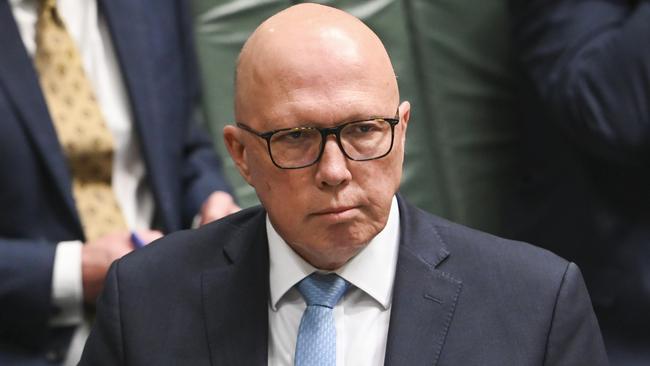Super plan a slippery slope: Future Fund chair Combet
Future Fund chairman Greg Combet has criticised plans by the federal Opposition Leader to allow first-home buyers to draw from their superannuation.

Future Fund chairman Greg Combet has hit out at plans by Peter Dutton to allow first-home buyers to draw down as much as $50,000 from their super for a deposit on their house.
In an interview with The Australian, the former chair of $223bn industry super investment vehicle IFM Investors warned that the push for super to be accessed early for other social purposes was a “slippery slope”.
Mr Combet, who has just taken over as chair of the Future Fund, said accessing super for home deposits risked further “blowing up” the housing sector and potentially destroying the current compulsory super system if it led to super being accessed for other purposes including “shopping at Woolies”.
“I don’t agree with opening up super, as Peter Dutton is suggesting, to take money out to blow up the housing market even more,” he said. “I’m a strong supporter of preservation.
“Superannuation has a specific purpose. The money has tax-advantaged status as it goes in and is meant for the purpose of long-term savings for your retirement.
“We’ve got to hang onto that.”
The plan to allow super to be accessed early for first-home buyers is a key part of the opposition’s policy on housing, which the Opposition Leader will take to the next election.
While the proposal has angered senior players in the superannuation movement who see it as undermining the system, it is seen as popular with younger voters.
The proposal was a part of the Morrison government’s policy ahead of the 2022 election but lapsed when the Coalition lost.

Since then, the rising cost of housing, particularly in key cities such as Sydney and Melbourne, and rising rents has made the housing shortage a major issue for the next election, which has to be held within the next year.
Mr Dutton reaffirmed the opposition’s policy on accessing superannuation for first-home buyers in his recent budget reply speech.
The opposition’s proposals also include a two-year ban on foreigners buying residential property.
The proposal has been strongly opposed by superannuation industry bodies, including the Association of Superannuation Funds of Australia and industry super-backed body Super Members Council.
But in a recent article in super industry newsletter Investment Magazine, the editor in chief of Conexus Financial, Aleks Vickovich, pointed out that the opposition’s policy was popular with voters and warned the super industry that it needed to step up its arguments for the importance of the preservation of super until retirement.
Mr Combet, a former secretary of the Australian Council of Trade Unions, has been involved with the industry super movement since its beginnings in the 1990s.
He said proposals to take money out of superannuation for purposes such as a home deposit were a “slippery slope” that could lead to it being accessed early for other purposes.

“Once you start opening it up for housing, everyone will come up with other ideas,” he said.
“Next thing it will be to take money to go to Woolworths. Then you destroy the system.”
He said super fund trustees regularly dealt with requests from members to withdraw money from super early for urgent or emergency circumstances.
“Treasury has built (those provisions) in, but it concerns me that every time the issue of opening up super early comes up, it is becoming a slippery slope,” he said.
Mr Combet’s trade union background saw him become involved in the emergence and growth of the industry superannuation sector, including becoming deputy chair of AustralianSuper (from 2002 to 2007), and chair of industry super fund-backed online bank ME Bank, initially from 2006 to 2007 and later from 2015 to 2020.
He became a board member of industry super fund investment vehicle IFM Investors in 2014, rising to the role of chairman in 2019, a role he held until last year, when he stepped down to become chairman of the federal government’s new Net Zero Economy Agency.




To join the conversation, please log in. Don't have an account? Register
Join the conversation, you are commenting as Logout